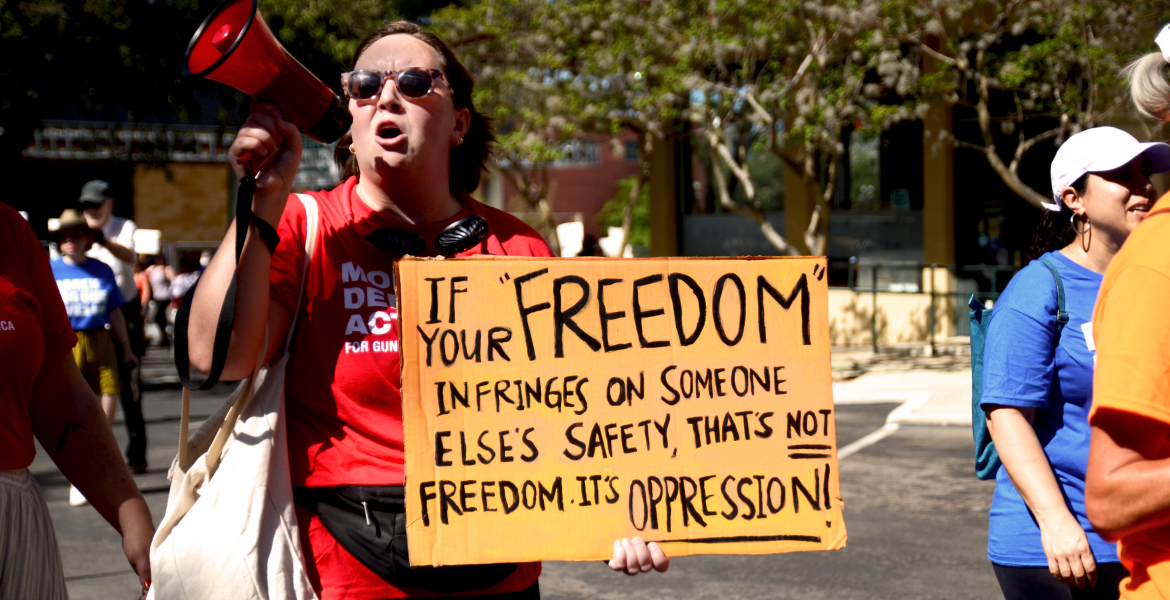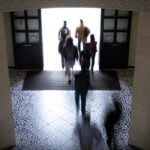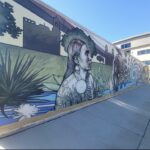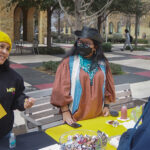Hundreds rallied in downtown San Antonio as part of the June 11 March for Our Lives demonstration that took place across the country to call for action on gun violence.
Founded after the high school shooting in Parkland, Florida in 2018, March for Our Lives has regained awareness after a mass shooter killed 19 children and two adults at a Uvalde elementary school on May 24.
Dylan Villalon, a communications and psychology student at Texas A&M University-San Antonio and Bexar County Regional Coordinator for MOVE Texas, was a guest speaker at the rally.
During Saturday’s march, Villalon spoke about his personal experience with guns as a Texas student. Villalon described a close encounter with an active-shooter situation while in high school, where a student had written a manifesto and brought an assortment of guns to school in a duffle bag.
“On that day, nobody lost their lives, but I did not understand just how close my friends and I came to a catastrophe that day,” Villalon said. “I couldn’t understand just how close (San Antonio) came to an immense tragedy.”
“Unfortunately, today, I can imagine very vividly what that would have been like,” Villalon told the crowd.
In addition to speaking at Saturday’s rally, Villalon was registering people to vote with MOVE Texas.
Villalon said he wanted to highlight “the actions that people could take right now to combat gun violence in Texas,” specifically through voting.
The event was organized in San Antonio by Frank Ruiz, UTSA alum and father of three, after being moved by the events at Robb Elementary.
John Cedio, Northside ISD instructor and U.S. Army veteran, 48, also was a guest speaker at Saturday’s march.
Cedio said an organizer for the event and former student of his had asked if he would be interested in speaking at the rally. As a U.S. history and civics teacher, Cedio said he encourages his students to “do their duties as a citizen,” and to “vote, protest, petition and use their voice as the constitution intended.”
Cedio said being a guest speaker at the march allowed him to lead his students by example.
This year, Cedio had to attend a “Stop the Bleed” training to get certified in applying tourniquets and procedures to follow when tending to bullet wounds.
“These are things a teacher should never have to worry about,” Cedio added.
Cedio said his wife, who is also an elementary school teacher, is constantly having to explain to her 5- and 6-year-old students why they need to practice active-shooter drills.
When asked about arming teachers with guns to protect their students and themselves in schools, Cedio said “it’s too dangerous.”
“This is not a realistic idea for teachers,” he said. “Teachers should not be walking around with handguns strapped to their waist.”
“We have little children who come near us, who hug us and are around us,” Cedio continued. “The answer is not adding more guns to the situation.”
Cedio said teachers signed up to be educators, not “bodyguards, police officers or soldiers.”
Cedio has been teaching for 14 years.
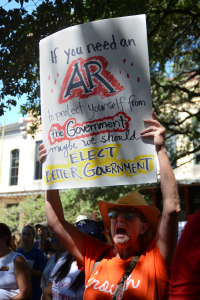
Sociology professor talks about solutions to mass shootings
Taking action, and more specifically, changing society’s stance on guns is not unrealistic, even for a country where gun culture and presence is strong, said Jacob Hardy, sociology professor at A&M-San Antonio.
But to get to that point, it takes acknowledging that mass shootings are everybody’s problem and that it takes a multi-pronged approach to deal with it, he said in a Zoom interview June 2.
Hardy, who teaches a number of sociology courses, including SOCI 1306, Social Problems, drew an example out of Marvel’s Spider-Man. When Peter Parker lets a robber go — believing it’s not his problem, only to later find out that the same robber murdered his uncle — it is a reminder that, no matter the level, everybody bears a bit of responsibility.
“As a culture we have to realize that whatever level you’re in — you could be a little kid in school and seeing somebody getting bullied — that’s (also) your problem,” Hardy said. “You could be a politician at the highest level, and it’s your problem; and you could be all of us in-between, and it’s our problem,” he said. “It’s going to take us as a culture, as a people to realize that ‘hey, this is our problem.’”
From there, he said acknowledging mental health and gun access have the clearest roles. Healthy minds do not wake up in the morning and decide to murder people.
People also need to acknowledge that guns play a deadly role, Hardy said. A conversation on accessibility — making it more difficult for mentally troubled individuals to access guns — needs to be on the table. Politicians need to shape the laws that reflect what they were democratically elected to do, he added.
Hardy also said he believes that blaming mass shootings on video games and the media is scapegoating.
“People have been scapegoating for a long time,” Hardy said. “That’s not new. When books first came out, people were like, ‘books are going to destroy people’s brains.’ People thought book addiction was going to destroy the world.”
As examples of scapegoating, Hardy said that throughout history, people have thought the same about music such as jazz. Similarly, when the shooting at Columbine High School happened, musician Marilyn Manson drew criticism because of false claims that the shooters were wearing T-shirts of Manson’s band. Also, school shootings can happen and video games like Grand Theft Auto take the blame, he added.
These variables are not exclusive to the United States, nor are mass shootings, Hardy added, but other countries do not experience these tragedies at the same frequency.
The response people need to have is one that is considerate of others. The solution is not “one-size-fits-all,” Hardy said, because of complex social factors intertwined with each other, but it starts at seeing people through an empathic lens. It takes acknowledging their wholeness, their depth, their emotions, never reducing people to an “it,” referencing 19th century social philosopher Martin Buber.
“I think that’s the beauty of sociology — we all work together, as a team, to make this thing healthy,” Hardy said.
